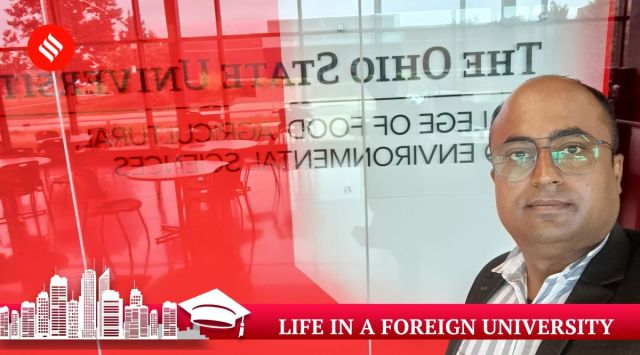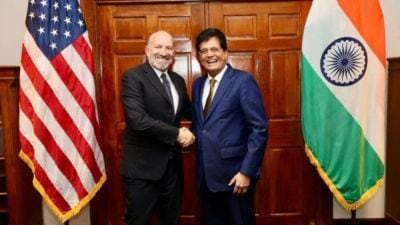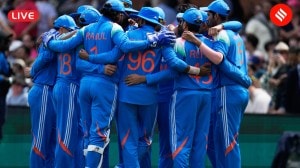In 2001, my father, a small businessman, did not allow me to move to Patna (an overnight journey from Araria via bus). TV channels used to regularly broadcast bad news those days and he was not keen on me leaving. A couple of years later, however, he learnt the importance of education and with my mother’s support – she is a government teacher in primary school – allowed me to move to Patna and get an education. I studied in Patna for four years. I learnt about engineering, medicine, what a career is etc. Patna taught me the basic concepts of life, things that I was unaware of in Araria.
In 2007, I moved to Chennai to pursue my BTech. My journey from 2007 to 2011 helped me improve my communication, understand geography, the cultures of different states, and much more. This was also the place where I had the clarity of engineering concepts for the first time. I made friends from Tamil Nadu, Andhra Pradesh, Kerala, and Karnataka. I even found friends from northern parts of India, and Bihar too.
Story continues below this ad
In 2013, I got a job but instead of taking it up, I decided to pursue an MTech at the University of Rajasthan. This was a good change as it was the first time I was staying in Rajasthan. I stayed in Jaipur till September 2014 and learned environmental engineering. I also pursued a part-time job in the same college as a teaching assistant. In my final year, I got an opportunity for a research fellowship at IIT Delhi.
First one in my district to go abroad
While I was soaking in the experiences I had gained from three different states, I received a message that read: “Congratulations! You have been selected for the Lectureship in the Central Govt. University in Ethiopia.”
With a twinkle in my eyes and dreams in my head, I Googled Ethiopia. It was very hard for me to decide to go abroad for the first time in my life. My parents were also shocked. The idea of going abroad for a job was not seen in a positive light in my hometown. I was probably the only person in my district to have a high-paying job in another country. While I had grown up hearing scary stories about people working abroad, I knew my work profile and decided to accept the offer.
In September 2014, I arrived in Addis Ababa, Ethiopia, where I stayed in Ambo district, my first workstation outside the country. While I was uncertain about my plans and had several fears, I decided to make the most of this noble profession I had chosen.

Story continues below this ad
Life in an Ethiopian university
Ethiopia taught me the meaning of peace and a lot of other things – both professionally and personally. People there recognised my performance and rewarded me with respect for 4.5 years. Of course, it was not easy to adapt to the climate (average temperatures were in the range of 17-25 degrees) or to embrace the culture shock. But many people supported me with the smallest gestures, like smiling at me while passing by, to giving me respect. I got to be a part of several workshops, seminars and conferences there.
Off to Vietnam
In 2015, I tied the knot. A few years later, I moved to Vietnam with my wife Dr Tiyasha as we bagged scholarships in the same institute. We landed at midnight in Ho Chi Minh City and agreed to wait till early morning to leave the airport. While we were waiting there, we saw a girl step out in the middle of the night and ride a motorcycle alone. This shocked us and gave us the courage to face our fears in a new country. When we reached our university after midnight, we were surprised to find that all the arrangements had been made for us.

Life in Vietnam
Vietnam is a country that teaches you ease, convenience and comfort. The country also has a good education system, especially Publica University, which houses a team of globally recognised professors. In Vietnam, I focused on my research related to machine learning and also took up a part-time job as a visiting lecturer at Publica University where I taught a high-level class of engineering for a couple of years.
This country’s enthusiasm for motorbikes saw us opting to commute on a motorbike. In Vietnam, we got to witness several cultural events, visited some beautiful islands, and also traced some similarities between our cultures. Here, people are very friendly and always ready to help you. It is extremely easy and convenient to explore places and one of the best experiences I have had has been at coffee places which are comfortable places to work, with free Wi-Fi and cozy seating.
Story continues below this ad
The American dream
In September last year, I moved to the USA as I was offered a postdoc position at The Ohio State University. When I landed in the US, I experienced yet another culture shock as the lifestyle here is very different from the countries I have stayed in before. From Cleveland to my workstation Wooster, I do not see people or traffic as I used to see in Vietnam or India. At first, I assumed it was a lockdown but was surprised to learn that this is how life is in the US. People here calculate their daily and weekly work and plan accordingly. Another big culture shock for me here was that there are no small grocery shops like in Asia. The US thrives on big shopping malls, even in the countryside. While coffee shops are available, they are not as cosy and friendly as in Vietnam.
As far as work and studies are concerned, I can certainly see why the US is considered to be at the top spot. From my principal investigator’s welcoming nature to the resources available in the form of scientific equipment and laboratories, Ohio University offered me space and well-equipped systems. The university has also given me the freedom to work on breakthrough research projects.
True, adjusting to the culture shock seems like a task in the beginning, especially due to differences in lifestyle, clothing, laws and even the daylight saving concept, but it is something that we can easily adjust to in some time. Unlike India, driving here is safe and enjoyable at any time of the day, provided you follow the traffic rules.
(This letter is part of a series by The Indian Express where we bring to you the experiences of students at different foreign universities. From scholarships and loans to food and cultural experiences — students tell us how life is different in those countries and things they are learning other than academics)

































